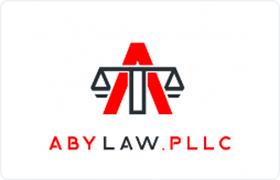 Pearl DUI-DWI Lawyers, Mississippi
Pearl DUI-DWI Lawyers, Mississippi
Sponsored Law Firm
-
 x
x

Click For More Info:
-
Abby Law, PLLC
403 B Towne Center Blvd Suite 102 Ridgeland, MS 39157» view mapCriminal Defense Law Get the Legal Support You Need
If you need an experienced litigation attorney, look no further than Aby Law, PLLC. We are a trusted general practice law firm in Ridgeland, MS.
800-953-2840
Sponsored Lawyers
1-3 of 3 matches
Medical Malpractice, Nursing Home, Wrongful Death, DUI-DWI, Personal Injury
Joseph Savan Gatlin III is a lawyer practicing nursing home abuse and neglect, wrongful death, medical malpractice and 1 other area of law. Joseph received a B.A. degree from Mississippi State University in 1993, and has been licensed for 29 years. Joseph practices in Jackson, MS.
(more)


 Heather Aby Ridgeland, MS
Heather Aby Ridgeland, MS Practice AreasExpertise
Practice AreasExpertise

